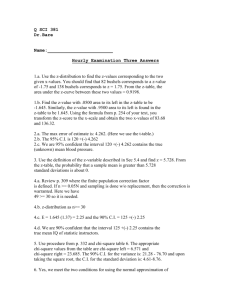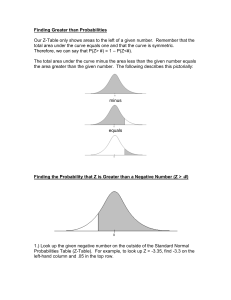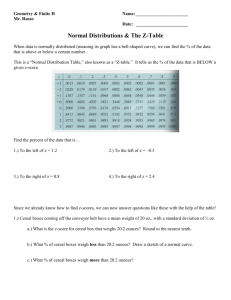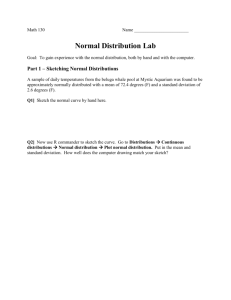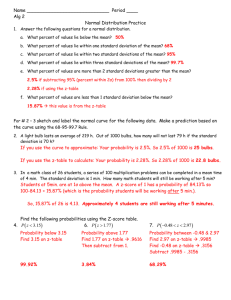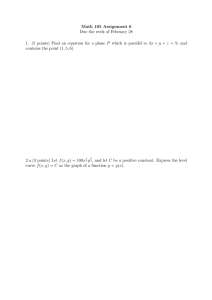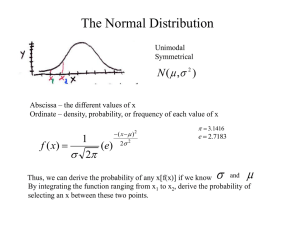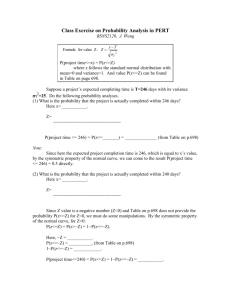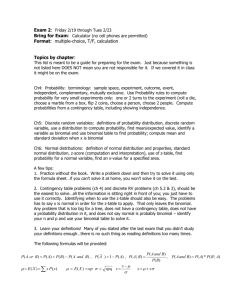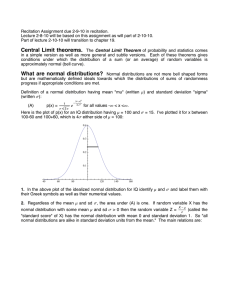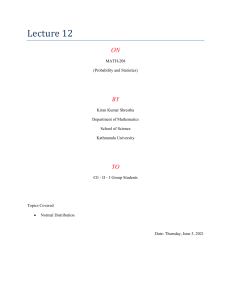Finding Areas Under the Normal Curve
advertisement
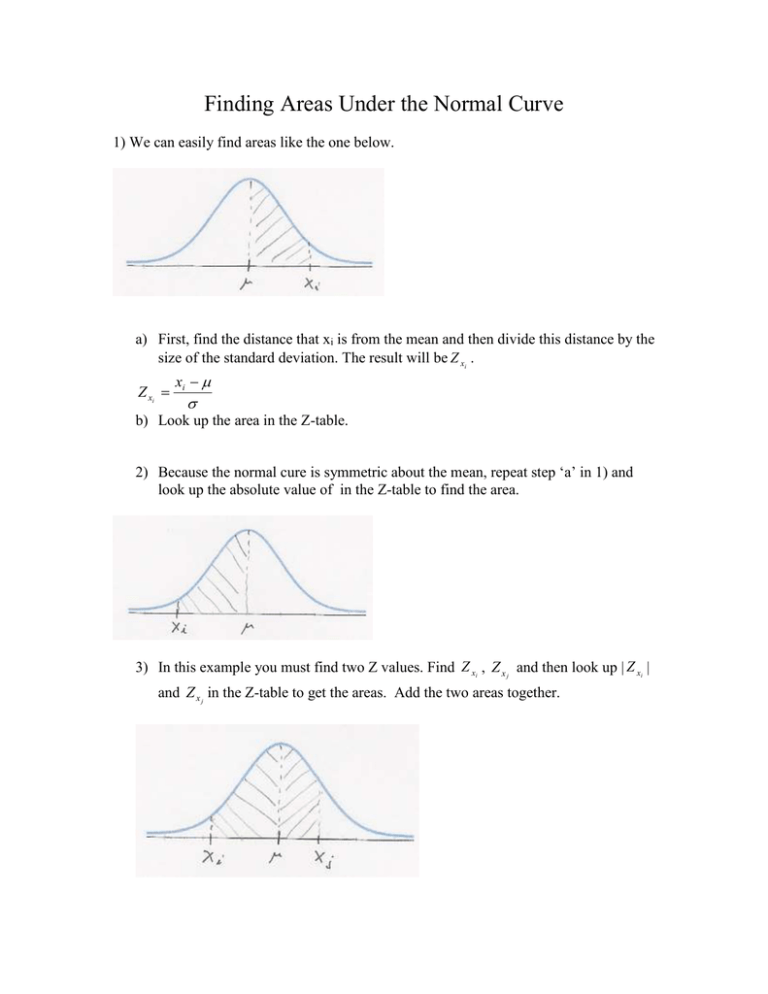
Finding Areas Under the Normal Curve 1) We can easily find areas like the one below. a) First, find the distance that xi is from the mean and then divide this distance by the size of the standard deviation. The result will be Z xi . Z xi xi b) Look up the area in the Z-table. 2) Because the normal cure is symmetric about the mean, repeat step ‘a’ in 1) and look up the absolute value of in the Z-table to find the area. 3) In this example you must find two Z values. Find Z xi , Z x j and then look up | Z xi | and Z x j in the Z-table to get the areas. Add the two areas together. 4) Finding the area in the tail below requires two steps. Remember: we know that the entire area to the right of is equal to 0.5. a) Find the area under the curve from to xi in the usual way. We’ll call this area A1. b) Subtract A1 from 0.5. 0.5 – A1 = Area in tail 5) In the example bellow we must find two areas: the area from to xi (Ai) and the area from to xj (Aj). Our area of interest will be Aj – Ai.
